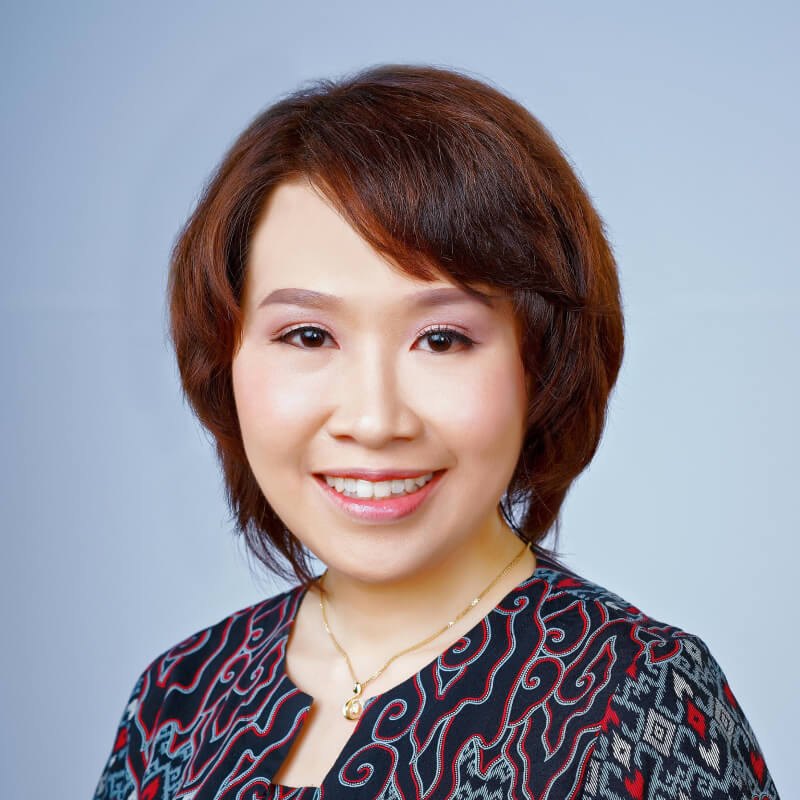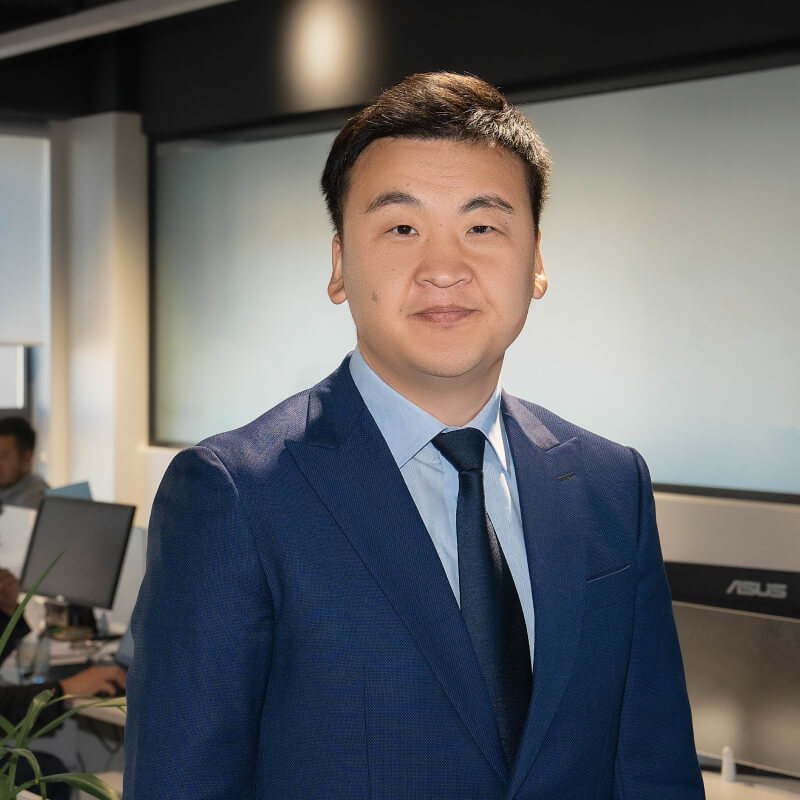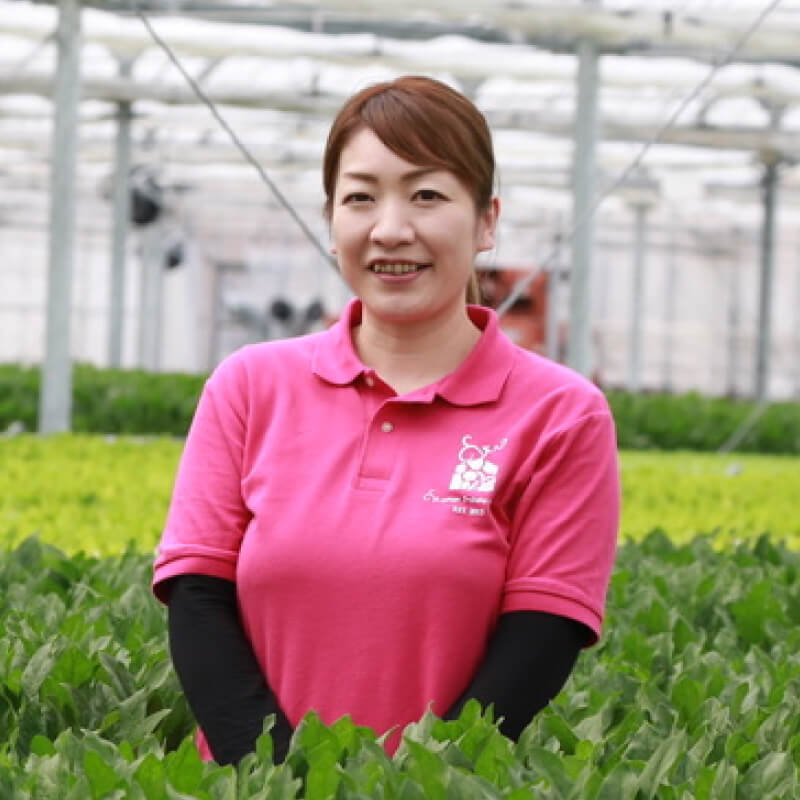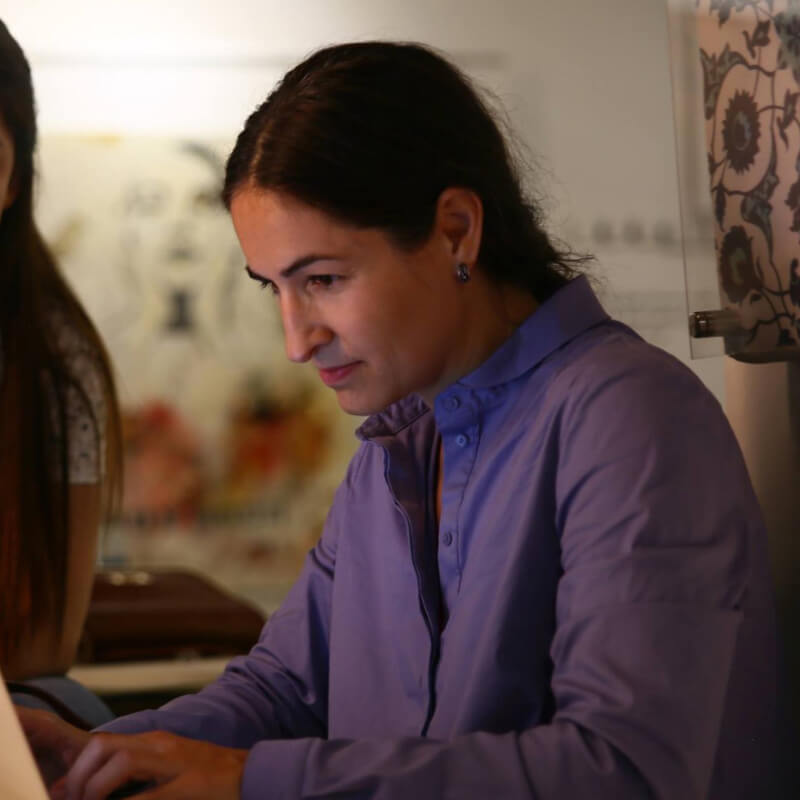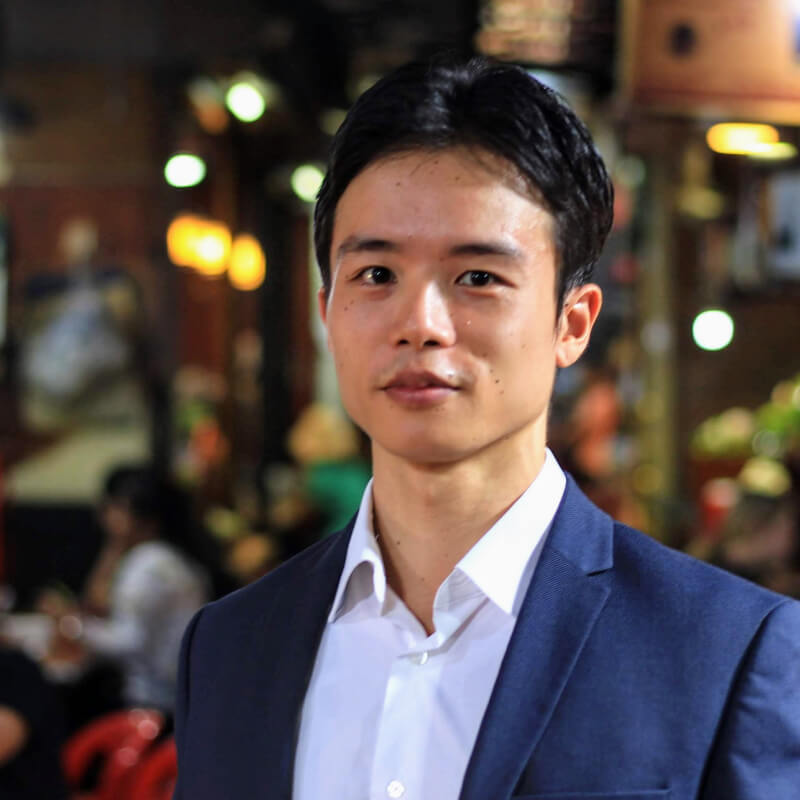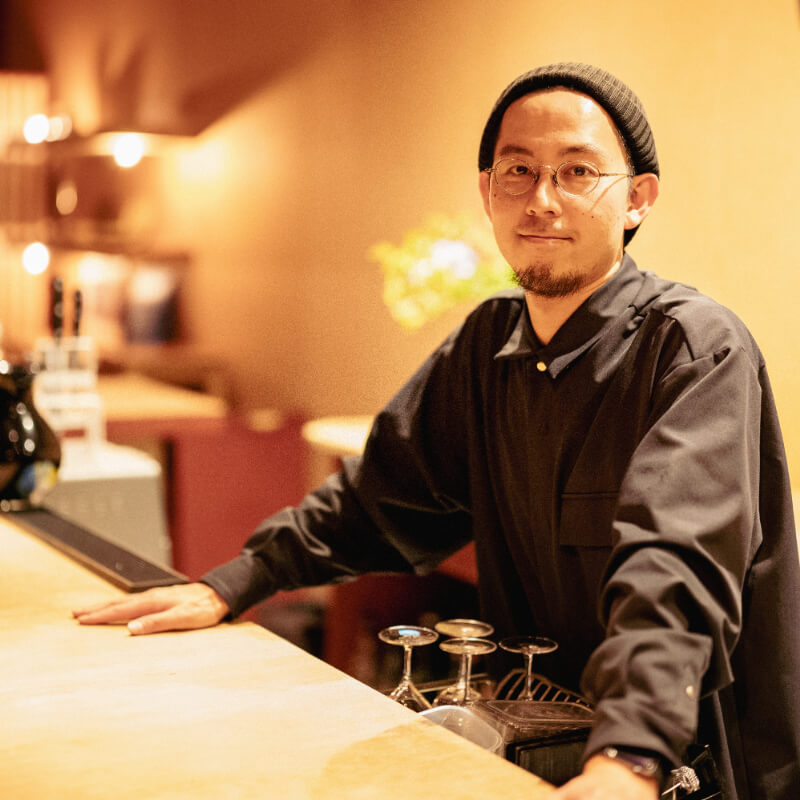
Sharing Beppu’s Appeal Worldwide Through Music:
From a Relentless University Life
to a Music Bar Rooted in Local Community
to a Music Bar Rooted in Local Community
KENZO, FUKAGAWA
Introduction
Two years of going all out, then discovering my own strengths through a break from university
Although he’s now firmly rooted in Beppu, at the time he entered APU, Mr. Fukagawa never envisioned such a future. Feeling anxious about being “no one,” he tackled every challenge he could find.
For about the first two years after I enrolled at APU, I decided I would jump into any activity that seemed like an opportunity for me. As a result, I found myself taking on all sorts of challenges. Back then, almost all my close friends from high school had gone to Tokyo, which left me feeling insecure—like I might already be losing at life (laughs). But then I wondered how I could make up for it, and concluded I had to give it my all at university. Looking back, it was a very young way of thinking, but I remember telling myself, ‘I’m on the brink here. I need a major breakthrough at APU!’.
I joined several event-focused clubs—often at the same time—and also got involved in HABITAT APU, an organization working on housing issues in impoverished regions around the world. In APU’s student residence, AP House, I served as the overall leader. For my part-time jobs, I helped set up and run events. At one point, I even thought, “Events are fascinating—I’d love to become an event planner.” Meanwhile, my parents, who were watching me dive headfirst into all these activities, would say, “It’s great that you’re active, but make sure to earn your credits too.” So I made sure to keep up with my coursework.
However, by the end of my second year, I felt the need to explore the world beyond APU. I wasn’t exactly acting like a big fish in a small pond, but between serving as a club representative and leading AP House, I started to sense I was fixated on recognition within a fairly narrow bubble. Within APU, people would tell me, “Wow, that’s amazing,” but deep down I realized, “This sort of environment only exists here.” I grew concerned that if I entered the working world still riding on that superficial sense of achievement, I could be in serious trouble.
So, I decided to step away from that environment for a while and took a year-and-a-half leave of absence. In the first year, I went back to my family home in Saga, worked three part-time jobs simultaneously—a variety store, an Italian restaurant, and a hotel—while saving money and trying to figure out, “What kind of work really suits me?”
During the second year of my leave, I studied abroad in the Republic of Malta. At the time, there were very few Japanese students there. But as soon as I started attending language school in Malta, I realized—this is something I could’ve done at APU too (laughs).
So I brought my resume to a sushi restaurant in Malta and asked, “I’m fine with working unpaid as long as there are no visa issues—would you let me work here?” That’s how I started. After that, my days were a routine of going back and forth between language school and the restaurant. I was constantly asked questions by customers about Japanese culture and food, and I worked side by side with the international staff to run the floor—an experience unique to Malta.
Through my part-time jobs during my time off and my study abroad experience in Malta, I realized something important about myself: I get more excited by the unknown future than by predictable stability, and I enjoy thinking and acting on my own rather than just following instructions.

During his leave of absence, Mr. Fukagawa kept moving—driven by a desire to discover what genuinely excited him. After returning to APU, he would go on to run a fully-fledged bar business, all while still being a student.
After coming back to APU, I started spending more time in town rather than just on campus. One day, after finishing job hunting in my final year, I stopped by the Italian bar I used to frequent to share the news with the owner. He responded, “Why don’t you start working here tomorrow?”—and that’s how I began working there. At that point, I had already completed most of my credits, so I ended up working nearly every day.
Then one day, the owner said, “There’s a bar space we’re not using—want to try running it yourself?” He lent me the space, and I got to experience what it’s like to manage a bar completely from scratch. It wasn’t an hourly wage job—it was commission-only for the few hours the bar was open each night. My income depended entirely on how many customers I could bring in. So I was constantly thinking, “How can I get more people to come?”
Since I started out the business under a lot of pressure, I was constantly thinking about how to increase sales and how to attract more customers. It was only for eight months, until I graduated, but that experience has definitely carried over into the work I do now.
Starting a Career in Tokyo and Preparing for Independence
After graduating from APU, Mr. Fukagawa joined Opt Holding, a digital marketing company, as a new graduate. He was assigned to the Human Resources Strategy Department, where he began working on recruitment and corporate branding projects.
Life in Tokyo was full of both work and play. I joined the company with the mindset that I wanted to work as hard as I could—and that’s exactly what I did. On weekdays I worked with full intensity, and after work or on weekends, I would go out to clubs or music events. That was the rhythm of my life.
My main role was in new graduate recruitment. Every day, I conducted interviews with four to five university students and held company information sessions. At the time, the concept of “recruitment branding”—combining corporate branding with recruitment strategies—was still relatively new. I proposed this approach to the company, and they allowed me to take the lead on it. I enjoyed all the work I was doing, and overall, it was a very fulfilling time. But I began to feel that the way of working as a company employee might not be the right fit for me. In order to be entrusted with larger responsibilities, you have to grow in line with the evaluation standards set by the organization. Looking back, I realize this may have been a selfish way of thinking, but I just couldn’t get excited about developing myself within those predetermined frameworks. The work itself had social value, and I found it intellectually stimulating to come up with new ideas in the field of recruitment and HR. Still, I just couldn’t feel genuinely excited about building a career as a company employee.
So, toward the end of my second year as a working adult, I decided to “return” to Beppu. From then on, I started visiting Beppu every few months. Each time I talked with people like the owner of the Italian restaurant I worked at during university or a local hotel owner, they would say, “So, when are you coming back to Beppu?” Eventually, after about four years in Tokyo, I made the move back in March 2019.
New Connections Born During the Pandemic
In 2019, he returned to Beppu and opened “the HELL.” Soon after, the COVID-19 pandemic hit.
The reason I decided to open a music-themed bar was simple: among the many bars in Beppu, I felt there wasn’t a place where people could truly enjoy music in high-quality sound. I’ve always loved music since I was young, but back when I was a student, I never imagined I’d one day be running a bar centered around it. When I opened my first bar in 2019, I was also doing some recruitment support work on the side, leveraging the skills I had developed in my previous job. So, things were off to a relatively smooth start. But then, the pandemic hit.
It was a difficult time to be running a restaurant or bar. But I told myself, “This forced pause is the perfect moment to move. What I do now will shape what comes later.” So I took action. I tried many different things, and one of them was organizing live music events.
The first live event was held at a long-established ryokan called Yamada Bessou. It was an intimate gathering of about 30 people. The response from the audience was very positive, and people around me said it was a great idea. After that, I began hosting music events in unique venues across Oita Prefecture—old movie theaters, cafés in the middle of the forest—places where live music isn’t typically performed.
At first, I was only thinking about how to keep my own bar going. I was too focused on what was right in front of me. But as I saw how hard the pandemic hit the local community, I began to think about what I could do to help. I acted on those ideas, and as a result, I started creating music events together with people from the town. Now, whenever I want to start something new, the faces of the people I’d like to work with immediately come to mind—people I know and trust in the community.
Discovering the Charm of Beppu through Music
What matters most to Mr. Fukagawa now is his hope that “both locals and travelers alike will discover a new side of Beppu through music.”
What I really love about Beppu is that whenever I try to start something, people naturally come together to help, and the city itself seems to get involved as well. There’s something just right about the scale of Beppu, and the way people relate to each other—it’s a comfortable distance. Maybe it’s because it’s a city that has always welcomed travelers. Beppu isn’t just about the hot springs—it’s also the people and the culture that have a way of relaxing your heart.
The music festival Iiyu da na!, now in its second year (2024), is what I call an “onsen-style urban music festival.” It’s not a huge outdoor concert. Instead, venues are spread throughout the city—like cinemas, hotel lobbies, and live houses—so visitors can wander through town, enjoying music, food, and hot springs along the way. It’s designed to make the most of Beppu’s onsen-town character and let people experience the city itself.
Right now, it’s a two-day event with about a thousand attendees, but I hope to eventually expand it into a week-long festival that brings tens of thousands visitors to the city during that time—a full-fledged “matsuri.”
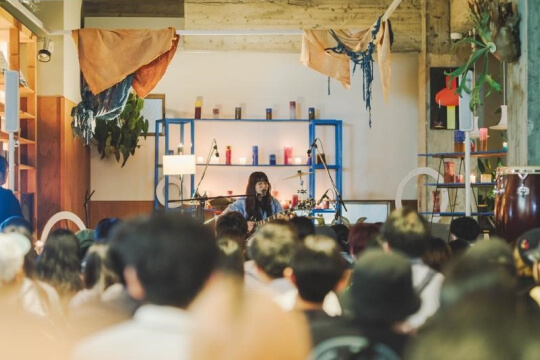
After COVID, my connection with the people here deepened, and now it feels like everything flows together—from daily operations at the HELL and TANNEL to the annual music festival.
Music really is powerful. For example, when we play Utada Hikaru’s “First Love” on vinyl at the bar, no matter how lively the crowd is, people fall silent and listen intently. Then the conversations begin—about the Netflix drama linked to the song, old memories, and everything in between. I’ve witnessed so many of these moments where music brings people together. It truly is a universal language—one that transcends words, cultures, and borders.
Beppu has its hot springs, a long history of welcoming travelers, and a diverse population, including the young students at APU. I truly believe that, by combining those strengths with music, we can create a culture that draws people from all over the world to Beppu for music. I feel that “sharing the appeal of Beppu and Oita with people outside the region and around the world through music” is my role—my place—in this town.

